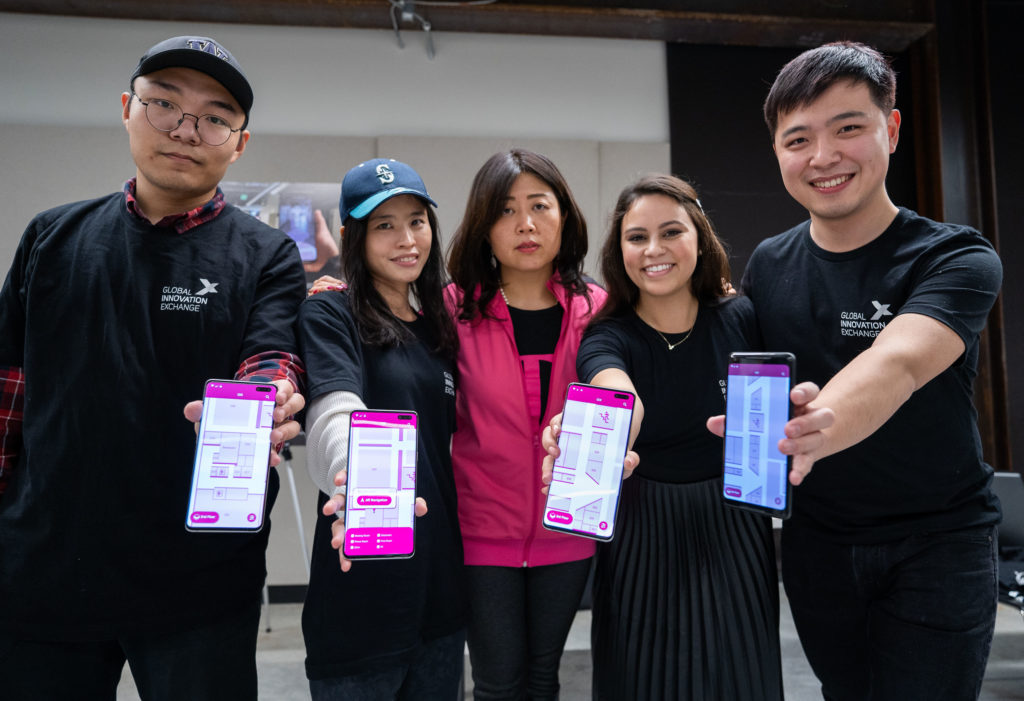In collaboration with GIX’s Consortium, which includes companies like Microsoft, T-Mobile, Roobo, and Vulcan, graduate students formed interdisciplinary teams to develop high-impact projects that address local and global challenges. The Launch Project enables a thorough exploration, development, and prototyping of a solution to a unique problem in partnership with a Consortium member. Below is a selection of Launch Projects from Cohort 2.
Empathics
(Vulcan)

After computing on the cloud, a pair of off-the-shelf smartglasses provide haptic and visual feedback to wearers so that they are aware of their conversation partner’s emotions in real time. After the conversation, users can review the collected data on a mobile app for learning purposes.
Uniband
(Student-led)

Speak Fun
(Roobo)

The app contains a backstory and interaction designed to introduce and teach words, allow children to practice, and then evaluates their progress. We leveraged insights from our user research, like learning with peers, creating social attachment and controlling the game with voice instead of touch. Pudding, the robot and the main character of our app, starts by telling a story and teaching a set of new words. A virtual peer shows the children how to play the games. The child then controls their character to overcome obstacles by pronouncing the right words. This interactive speech practice encourages children to apply what they have learned in context. The children are evaluated on their learning via quizzes. We proved that our solution leads to effective learning with user evaluation (2 new words per 10 min). Compared to tutors (> $50 per hour), our app costs less and is accessible anywhere.
Microsoft A-Eye
In partnership with Microsoft’s AI for Good team, students created a low-cost and portable retina camera with AI image enhancement to expand access to ophthalmologic care. Designed for users who are not medical professionals, it utilizes unique software and hardware techniques to capture high-quality fundus images at a low cost eliminating the need for ophthalmologists to perform retinal imaging.
Microsoft Gaia Cam
In partnership with Microsoft’s AI for Good team, the Gaia Cam is an integrated system of IoT devices that use computer vision devices to collect data on plastic waste in rivers. By deploying multiple devices along rivers, the team expects to build a map of plastics flow along rivers and eventually locate pollution sources based on data analysis. The project is open source in order to encourage anyone to participate and refine the project.
T-Mobile Arrow

T-Mobile 5G Retail Experience

Robot Factory




